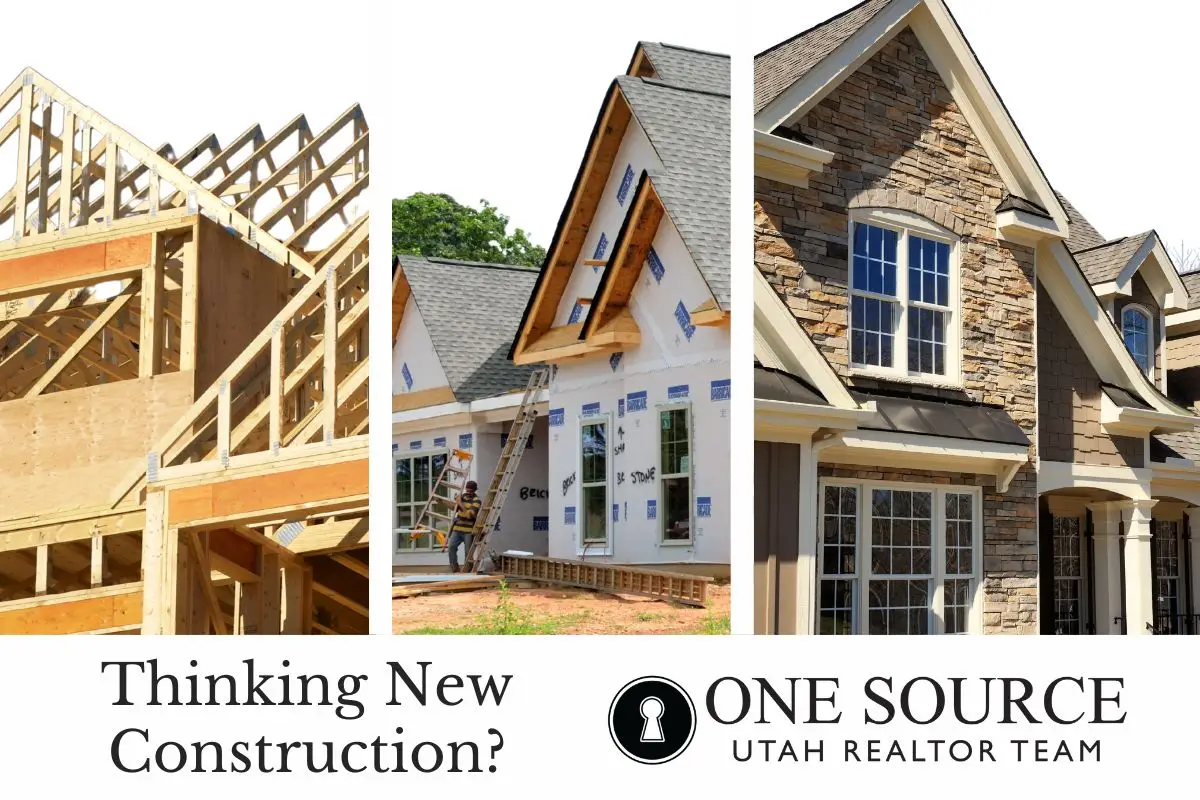There’s something undeniably exciting about buying a brand-new home. The fresh paint, the flawless finishes, the “new house smell”—it feels like stepping into a blank canvas for your future.
And for many buyers, especially in today’s market, new construction can feel like the dream.
But dreams come with details. And when it comes to new construction, it pays to approach the process with both excitement and caution.
We’ve worked with countless clients over the years as they explored building a home, and we want you to feel informed—not overwhelmed—as you begin the journey.
Here are 10 key things every buyer should know when exploring new construction:
1. Representation Matters—Even in New Construction
New homes feel shiny and simple—but the process is rarely either. One of the biggest misconceptions buyers have is that they don’t need a real estate agent when purchasing new construction.
The builder has an agent on site—but that agent works for the builder, not for you.
💡 If you want someone representing your best interests, ask yourself:
- Do we want someone to explain the contract in easy to understand terms?
- Are we aware of clauses like non-refundable deposits, material escalation clauses, or inspection limitations?
- Do we want an advocate who’s worked with builders and can spot the red flags before we sign?
We’ve seen contracts where buyers agree not to post anything negative about the builder online, or where deposits become non-refundable much earlier than expected. Representation protects you and gives you clarity before you’re locked in.
2. Don’t Wait to Let the Builder Know You Have an Agent
Even if you’re just stopping by a model home, tell the builder upfront that you plan on working with your real estate agent. If you tour a model home without your agent and don’t mention representation, they’ll likely mark you as “unrepresented” and move forward that way.
Can you still bring in your agent later? Sure. But it gets awkward—and you may find yourself having to negotiate who covers your agent’s fee after the fact.
If you want an agent’s help, say so upfront. That gives your agent the opportunity to guide you and often allows the builder to cover the fee as they originally budgeted.
3. Be Clear on What’s Included—and What’s Not
Model homes are beautiful. That’s the point. But many of the features you’re seeing are upgrades, not standard.
💡 Questions to ask:
- Are these the standard finishes or upgrades?
- What kind of flooring is standard?
- Do they include landscaping, fencing, or blinds?
- What’s the base price, and what does that actually include?
Don’t assume. Ask. Compare apples to apples between builders.
4. Understand Spec Homes vs. Build-to-Suite—and How Upgrades Add Up
Many builders today are constructing spec homes—pre-designed, pre-selected homes based on what they believe will sell quickly. These homes can be great if you want new without the wait, but you won’t be choosing the floor plan or finishes.
Some still offer build-to-suite, where you choose:
- Your floor plan
- Elevation (the exterior look of the home)
- Structural options and design upgrades
💡 Here’s where it adds up:
- Lot premiums. Size and location matter, and there is often a higher price tag for a larger lot or premium location within the community.
- Structural upgrades (like a 3-car garage, 9’ ceilings, a walkout basement, or a covered patio) can add up quickly depending on your selections.
- Design center upgrades (cabinets, flooring, countertops, etc.). We regularly see buyers spend $20,000 to $40,000+ on design center upgrades, on top of whatever structural upgrades they’ve chosen.
This is a real challenge with new construction because it’s often hard to pin down a final price tag up front. Structural items are typically factored into the original contract price, but you may not know how much the design center upgrades will cost until you go to the design center—which may be a month or more down the road.
And you’re not done there. You may still need to meet with an electrician to find out what electrical items are standard, and then (with a markup) choose any additional features you want—more outlets, a 220V outlet in the garage, extra can lights, etc.
5. Understand the Builder’s Process and Reputation
Every builder has a different process—and the experience varies not just by company, but by the team involved.
💡 Do your research:
- Ask about communication. Will you have regular updates from the builder’s agent or superintendent?
- How will updates be communicated—emails, texts, or portal updates?
- Will you receive regular timelines and milestone reports?
- Look at online reviews.
- Review the contract carefully—are deadlines clear?
We’ve worked with some builders that are proactive and communicative at every step—and others that leave buyers guessing. The difference can affect your entire experience.
6. Ask to See the Contract Before You Sign Anything
This one’s important: you can (and should) ask for a copy of the builder’s contract before signing anything.
Why? Because many builder contracts have different rules than the standard Utah Real Estate Purchase Contract.
For example:
- They call it by different names, but when does the earnest money, initial deposit, or construction deposit become non-refundable?
- What are the penalties for delays? If the builder misses a deadline, you may have little recourse. If you miss a deadline, you may face daily penalties or risk losing your deposit.
- Are there clauses about inspections, financing, or customization that may be limited?
- Can you visit the site without being escorted by the builder’s agent? If you do, can you be fined? (We’ve seen this.)
💡 Give yourself and your agent time to review the contract and ask questions. It’s not unreasonable—it’s smart.
7. Builder Incentives Are Tempting, But Know the Trade-Offs
Many builders are offering attractive concessions right now—rate buy-downs, closing cost credits, or money toward upgrades.
But be aware:
- These often require you to use the builder’s preferred lender
- The “concession” may already be built into a higher purchase price
- You should still compare offers from outside lenders—don’t assume it’s the best deal
That said, these incentives can be worth it—especially if monthly payment and comfort are your top priorities. It’s not always about getting the biggest return.
Sometimes, it’s about loving where you live. Builder concessions can improve affordability, ease, and confidence in moving forward. Just don’t assume—it’s worth comparing.
8. Ask About Inspections
Many builders are not fans of buyers hiring their own inspectors. After all, “they build homes every day!” That’s a red flag.
Subcontractors can and do make mistakes that may not be caught by the superintendent or city inspector. We’ve seen it firsthand.
You should be able to:
- Have an independent inspection
- Participate in a final walkthrough
- Verify the quality of work before closing
You’re buying a new home—not gambling on a mystery box.
9. If You Have a Home to Sell, Timing Is Critical
If you’re buying new construction and need to sell your current home, it’s essential to work with an agent who can:
- Review the builder’s contract
- Coordinate your sale timeline with the builder’s deadlines
- Protect you from financial risk if something doesn’t line up
We’ve helped many clients manage this transition. With clear planning and good communication, you can move forward with confidence and avoid unnecessary stress.
10. Your Experience Will Be Defined by Who’s On Your Team
New construction can be exciting—but also confusing. The experience can vary wildly from builder to builder.
Having someone in your corner who knows the process, understands the contracts, and has worked with local builders can make a huge difference in how smoothly your journey goes.
We’ve been doing this for 15+ years and have walked alongside clients with all kinds of builders—some amazing, some difficult. We’re here to help you stay excited while also staying empowered.
Looking at New Construction? Let’s Make It a Smart Move
New construction can be an exciting way to get exactly what you want in a home—but the process is different. And every builder does it differently.
With the right agent by your side, you’ll be better equipped to make smart choices, avoid costly missteps, and enjoy the journey from foundation to finish.
📌 Next Step: Click below to explore your options and connect with us today.







